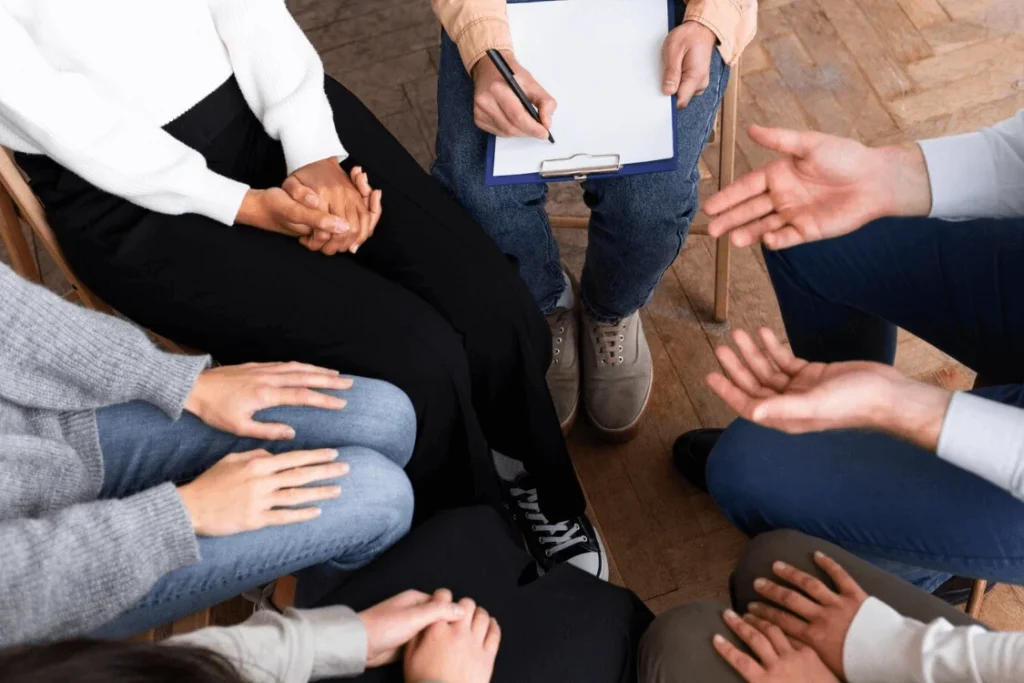
How to Get Mental Health Help Without Insurance
Mental health struggles don’t pause just because you lack insurance. In the U.S., nearly 1 in 5 adults face mental health challenges, with many uninsured. But affordable care in the form of free clinics, sliding-scale therapists, and community programs can help bridge the gap.
From local NGOs to telemedicine options that are less expensive than a gym subscription, this guide outlines tried-and-true methods for finding mental health assistance without insurance. You’re not fighting this battle alone, and help is closer than you may imagine. Let’s talk about how to put your health first since everyone needs care, whether or not they have insurance coverage.
The Mental Health Crisis in the U.S.
Almost every family is impacted by mental health issues, with one in ten young people suffer from serious depression. However, around 30 million Americans do not have insurance that would pay for care, leaving many to face addiction, anxiety, or suicidal thoughts on their own.
In addition to causing emotional distress, untreated mental health conditions also negatively impact relationships, employment, and physical health. On average, uninsured persons die 25 years sooner from avoidable causes.
But help exists, even without insurance. Free clinics, community health centers, and sliding-scale therapists offer low-cost mental health care, while telehealth apps provide therapy for less than $50 per month.
Understanding the Importance of Mental Health Services
Millions of Americans face mental health conditions like anxiety, depression, or substance use disorders each year, yet stigma and cost silence many of them. Imagine a classroom where 7 out of 30 people struggle silently, afraid to ask for mental health support.
Financial barriers, such as high therapy fees, or fear of judgment keep people from seeking care, even when support is available. But silence isn’t strength, it’s a symptom of a broken system. Free clinics, nonprofit organizations, and online tools are working to change this, proving no one deserves to suffer alone.
Neglecting mental healthcare simply makes it worse, much like ignoring a broken bone. Untreated conditions can result in heart issues, chronic pain, losing one’s job, or damaged relationships. Hope can be restored, and crisis avoided, by taking early action.
Calling a crisis line, attending a free support group, or talking to a school counselor are just a few examples of ways to access resources for mental health. For example, the risk of relapse drops by 60% when depression is treated.

Affordable or Free Resources for Mental Health
Community Mental Health Centers
Even without insurance, community mental health facilities offer low-cost or free therapy, psychiatric assessments, and crisis support. Centers like the CLARE Foundation in Los Angeles, which get funding from state or federal programs, charge sliding-scale rates as low as $5 each session.
Among the services provided are case management, medication management, and 24-hour crisis intervention. To find one, use SAMHSA’s Treatment Locator; for local referrals, dial 211. These institutions prioritize critical needs, such as addiction or suicidal thoughts, to ensure that no one is turned away.
For instance, the Community Behavioral Health Centers (CBHCs) in Massachusetts provide treatment, peer support, and walk-in crisis care every day, with longer hours to make themselves accessible.
Non-Profit Organizations
Organizations that fill care shortages include Mental Health America and NAMI (National Alliance on Mental Illness). You can connect with peer support groups for depression or anxiety by calling NAMI’s free helpline at 1-800-950-6264. They also offer 24/7 crisis support via their text line, which is “NAMI” to 741741.
Free mental health screenings for PTSD, bipolar disorder, and anxiety are available from Mental Health America, along with coping strategy toolkits. In order to maintain mental health treatment as a top priority for nationwide, these groups also push for legislative improvements.
Hotlines and Crisis Support
Free hotlines are available 24/7 for immediate assistance. Press “1” for veteran-specific support. Call 988 Suicide & Crisis Lifeline to access private therapy for suicide thoughts, addiction, or sorrow. For judgment-free care, LGBTQIA+ people can reach The Trevor Project at 1-866-488-7386 or by texting “START” to 678-678.
To connect with a trained volunteer for non-emergency help, text “HELLO” to 741741 (Crisis Text Line). These services are staffed by compassionate mental health professionals who listen without judgment and are trained to help in times of crisis.
Drop-In Centers and Support Groups
Local drop-in facilities, such as Kandu Island in Traverse City, Michigan, offer free, safe peer support where people can develop a stigma-free community and share their stories. For people dealing with substance abuse and mental health disorders, organizations such as Alcoholics Anonymous (AA) and the Depression and Bipolar Support Alliance (DBSA) hold meetings throughout the country. These places remind you that you’re not alone by emphasizing communal recovery, whether through informal discussions, art classes, or get-togethers.
Online Therapy Platforms
Therapy through platforms like BetterHelp and Talkspace typically costs $60 to $90 per week, which is a fraction of in-person treatment costs. If money is tight, Open Path Collective offers certified therapists and trained counselors for as little as $30 per session.
The self-help toolkits from Mental Health America and the guided meditations from Insight Timer offer access to free tools. For times when you simply need to talk to, services like 7 Cups allow you to connect with volunteer listeners for free.
Government Programs
Medicaid covers psychotherapy, psychiatry, and rehab for low-income individuals. You can apply online through Healthcare.gov or your state’s Medicaid office; coverage often starts within weeks. Local health departments, such as NYC’s Health + Hospitals, operate sliding-scale clinics with visits ranging from $0–$30. Veterans can also receive free counselling through VA clinics, even if they’re not fully enrolled in VA healthcare services.
Educational Institutions
Students receive free counseling through school health centers. Universities like UCLA and NYU run training clinics where supervised psychology students provide therapy for $10 to $40 per session. If you’re not a student, you can still fin low-cost therapy by searching the Association of Psychology Training Clinics, which lists teaching clinics across the country.
Employer Assistance Programs (EAPs)
Many jobs include free, confidential EAP counseling (6 to 12 sessions yearly). Companies like Starbucks and Amazon extend these benefits to part-time staff, covering stress, grief, or substance use. Ask your HR department about how to access these services.

Taking the Next Steps Without Insurance
Research Local Options
To fin mental health resources in your area, including clinics that provide sliding scale fees or free care for those without insurance, start by using SAMHSA’s Treatment Locator, a free and reliable tool. For personalized recommendations, contact the SAMHSA hotline at 1-800-662-4357, which is open 24/7.
Nonprofits like NAMI or Mental Health America, which link people to peer support groups or inexpensive therapy, are frequently included by local health departments and community boards.
Ask providers directly if cost is an issue, such as “Do you give cash discounts?” or “Can we modify fees based on my income?” Even in the absence of health insurance, many clinics give priority to urgent needs like addiction or suicidal ideation.
Be Your Own Advocate
You deserve care that fits your budget. When reaching out to therapists, say: “I don’t have health insurance, do you have sliding-scale options?” Over 40% of private practices adjust their rates for financial hardship, often lowering costs to $30 to $50 per session.
For those eligible for Medicare, clinics like Federally Qualified Health Centers provide therapy for $0 to $30. If denied help, persist and ask to speak with a clinic manager or social worker who can explore grants or payment plans.
Connect with Your Community
Local nonprofits, clergy, and social workers often know under-the-radar resources. For example, churches may host free support groups, while organizations like United Way (dial 211) link you to crisis housing or food assistance, easing stress so you can focus on healing.
If traditional options feel out of reach, consider Twilight Recovery. We are a US-based program offering affordable mental health services with flexible payment plans. Our team specializes in addiction and co-occurring disorders, providing personalized care even without health insurance.
Don’t Give Up, Get Mental Health Aid
Mental health care shouldn’t depend on insurance. At Twilight Recovery US, we provide free or low-cost programs for anxiety, addiction, and trauma, with sliding-scale fees based on your income. Our specialists offer personalized treatment plans, including therapy, support groups, and holistic care.
If you’re uninsured, call our 24/7 helpline at (1)888-4148183 to explore grants, payment options, or Medicare-aligned solutions. You’ve already taken the hardest step by seeking help, now let us guide you toward affordable healing. Your recovery starts here.

